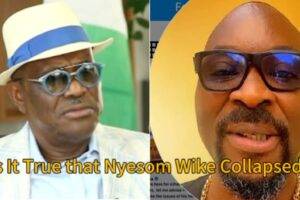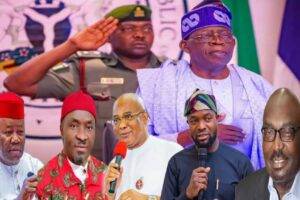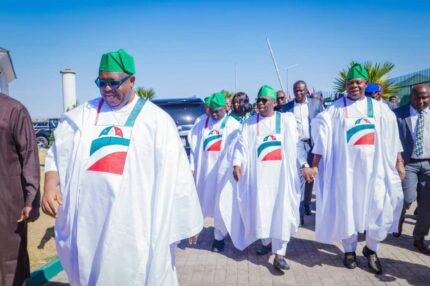Governors of seven states governed by the Peoples Democratic Party (PDP) have taken legal action against President Bola Tinubu and the National Assembly over the suspension of Rivers State Governor Siminalayi Fubara. The governors of Bauchi, Adamawa, Bayelsa, Enugu, Osun, Plateau, and Zamfara, through their Attorneys-General, filed a suit before the Supreme Court challenging what they described as an unconstitutional act.
The controversy erupted after President Tinubu declared a state of emergency in Rivers State on March 18, suspending Fubara, his deputy, Ngozi Odu, and the entire Rivers State House of Assembly for six months. In his place, Tinubu appointed a sole administrator to govern the state. The National Assembly later ratified this decision, a move that has since sparked intense political and legal debates.
PDP Governors Cite Constitutional Violations
The PDP governors argue that President Tinubu acted beyond his constitutional powers by suspending an elected governor and appointing an unelected administrator. They referenced Sections 1(2), 5(2), and 305 of the 1999 Constitution (as amended), which outline the limits of presidential authority in declaring a state of emergency.
According to the suit, the plaintiffs are seeking a declaration from the Supreme Court that “the President has no powers whatsoever or authority to suspend a democratically elected governor and deputy governor of a state under the guise of a state of emergency.” They also argue that the suspension of the Rivers State House of Assembly was illegal and in contravention of constitutional provisions.
Furthermore, the governors contend that the conditions required for declaring a state of emergency, as stipulated in Section 305 of the Constitution, were not met in Rivers State. PDP Governor claim that Tinubu’s proclamation was politically motivated rather than based on genuine security concerns or natural disasters, which are the recognized justifications for such an action.
Legal Challenge to National Assembly’s Approval
In addition to questioning the President’s actions, the PDP governors also challenged the National Assembly’s role in endorsing the suspension. They argued that the approval was not conducted in accordance with constitutional requirements, particularly regarding the voting process.
The litigants contend that the use of voice votes to ratify the state of emergency and suspension of the governor was unconstitutional. They maintain that the Constitution mandates a two-thirds majority vote of each legislative chamber before such an approval can be valid. By failing to adhere to this requirement, the National Assembly’s endorsement of Tinubu’s action is deemed unlawful.
The governors further argue that allowing such a precedent would threaten Nigeria’s democracy, as it could pave the way for arbitrary removal of elected officials by the executive arm of government without due process.
Demands for Supreme Court Intervention
The PDP governors are urging the Supreme Court to nullify the state of emergency in Rivers State and reinstate Governor Fubara, his deputy, and the House of Assembly. They are also seeking a ruling that prohibits the President from unilaterally suspending any elected official in the country.
Among the reliefs sought by the plaintiffs are:
A declaration that the suspension of Fubara, his deputy, and the House of Assembly members was unconstitutional, unlawful, and void.
An order nullifying the appointment of the sole administrator imposed by the President.
An order restraining President Tinubu, the National Assembly, and their agents from interfering with the duties of Rivers State’s elected leaders.
An order preventing the President from attempting similar actions in any other state.
The plaintiffs emphasize that allowing Tinubu’s actions to stand would set a dangerous precedent that could lead to the erosion of democratic principles in Nigeria.
Political Implications and Reactions
The lawsuit has intensified political tensions between the ruling All Progressives Congress (APC) and the opposition PDP. While Tinubu’s supporters argue that his actions were necessary to restore order in Rivers State, opposition figures see it as a blatant overreach of executive power.
Legal analysts suggest that this case will serve as a major test for Nigeria’s judiciary, particularly in determining the limits of presidential powers in relation to state governments. If the Supreme Court rules in favor of the PDP governors, it could reaffirm the autonomy of state governments and restrict future executive overreach. However, a ruling in favor of Tinubu could embolden the presidency to take similar actions in other states facing political crises.
As the case unfolds, all eyes are on the Supreme Court, whose decision could significantly shape Nigeria’s political landscape and define the balance of power between the federal government and the states.
Table of Contents
Discover more from OGM News NG
Subscribe to get the latest posts sent to your email.














